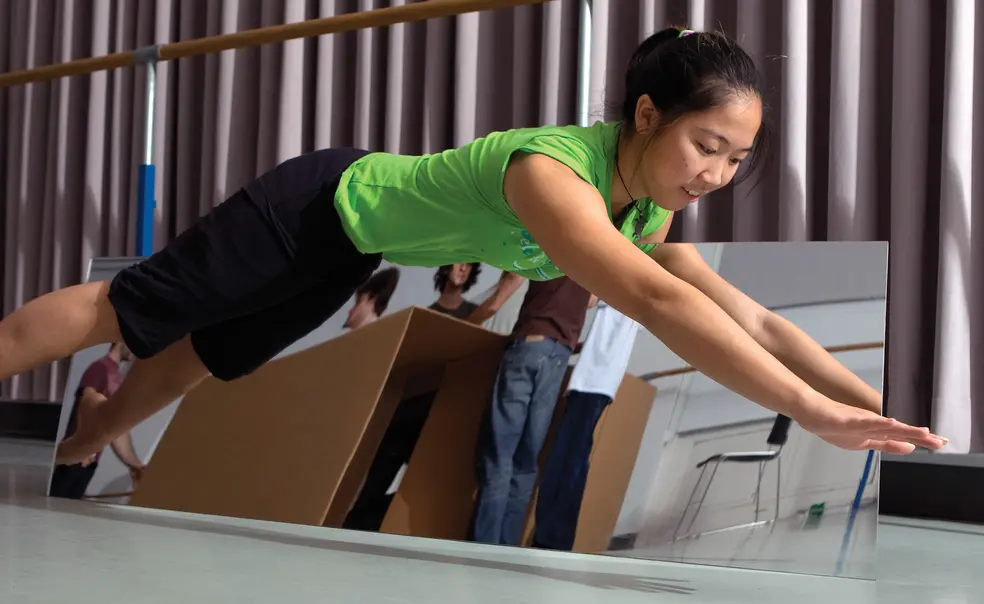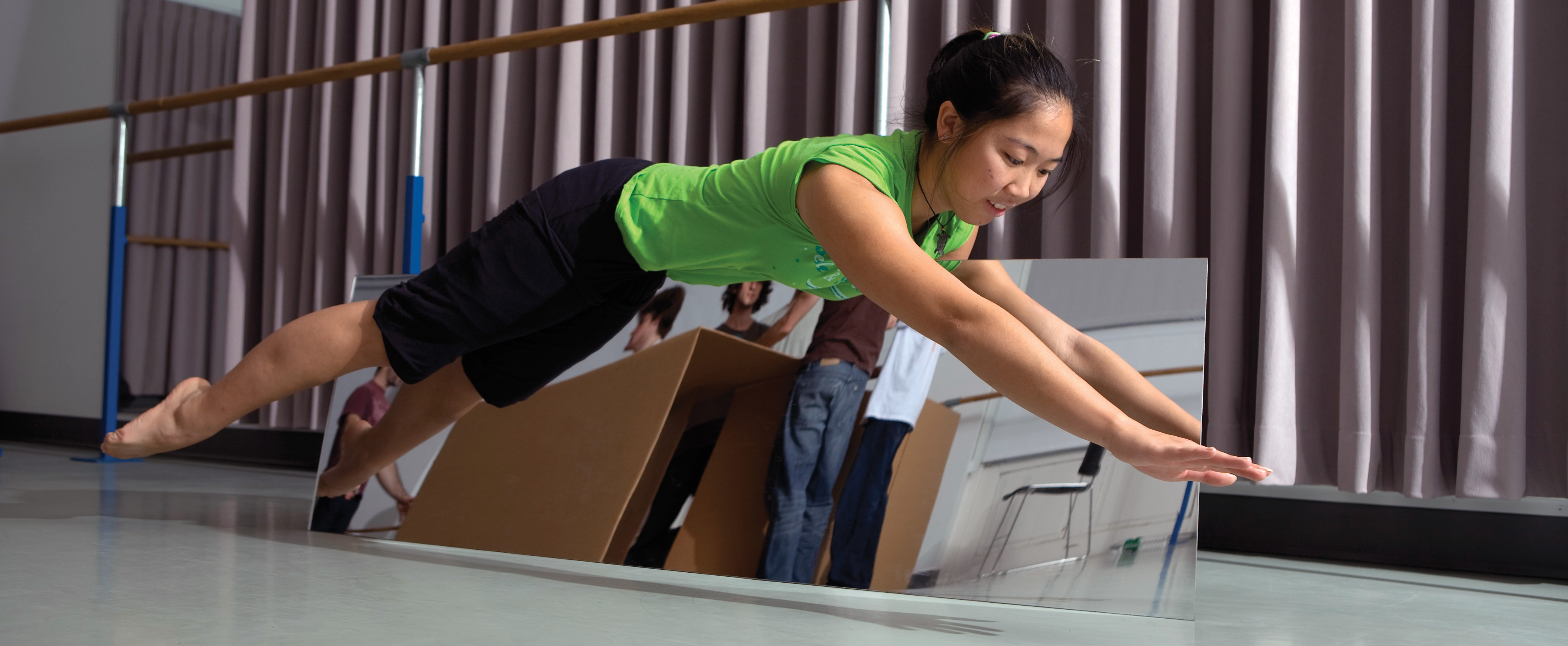Fund helps faculty, students 'make magic happen'
There was no doubt that Stephanie Chen ’09 wasn’t actually flying as she performed an illusion (using a mirror for assistance) in a Dec. 10 production at Frist Campus Center — but was it magic?
Chen’s act was part of a show presented by undergraduates in the Princeton Atelier course on “The Magical: Magic, Comedy, Theater,” taught by professional performance artists Steve Cuiffo, Trey Lyford, and Geoff Sobelle and funded, in part, by the David A. Gardner ’69 Magic Project.
“What made this course great were all the discussions we had about the very backbone of what makes magic really magic,” Chen, who is majoring in computer science with a certificate in theater and dance, said in an e-mail. “Does the magician perform magic or is the magic happening to him, and how does this relate to the impression that the audience gets? Is the magic trick ‘ruined’ if the audience knows how it is done, or can it still be an effective illusion? ... These were just some of the questions that I gained a new perspective on.”
For Sukrit Silas ’11, part of the Atelier course’s magic lay in the realization that certain constraints are mere illusions.
“This has easily been one of my most valuable experiences at Princeton, and it’s taught me immeasurably about the creative process,” Silas said.
This deepened understanding and scholarly exploration of magic is precisely what Lynn Shostack hoped to engender in 2004 when she established the David A. Gardner ’69 Magic Project in memory of her late husband, a lifelong lover of magic. The project awards more than 15 grants each year, ranging from $5,000 to more than $25,000 to support performances, course development, conferences, and equipment at Princeton. To date, grants totaling about $1 million have been approved.
“Magic provides a base that is so broad that in any intellectual area of inquiry you’re going to bump into magic somewhere,” Shostack said.
In architecture, assistant professor Edward Eigen received a grant to lead students on a tour of history through the exploration of “magical machines.” And lecture demonstrator Kathryn Wagner was awarded support for “The Chemistry of Magic,” a course for non-science majors that takes unconventional approaches (writing with fire, releasing a “genie” from a bottle) to teach about chemical reactions and experimental design, among other concepts.
But Magic Project funds are not limited to proposals with “magic” in the title — that’s part of the magic.
“In a sense, the project is about magic in the very metaphorical sense of making magic happen,” said Carol Rigolot, executive director of the Council for the Humanities. “It is a venture capital fund for the humanities” that often helps support topics in “the nooks and crannies of the humanities.”
In that vein, the project has funded Near Eastern studies professor Michael Cook’s creation of short courses on topics not usually taught at Princeton, including Arabic manuscripts, Islamic coins, and Arabic dialects. Likewise, a spring-break trip to London will be supported for students in the “London Stages” course, taught by Michael Cadden, director of the Program in Theater and Dance. And the list goes on.













No responses yet